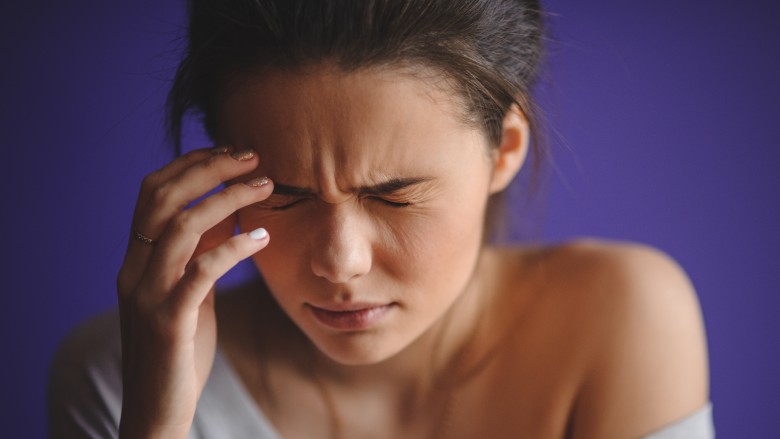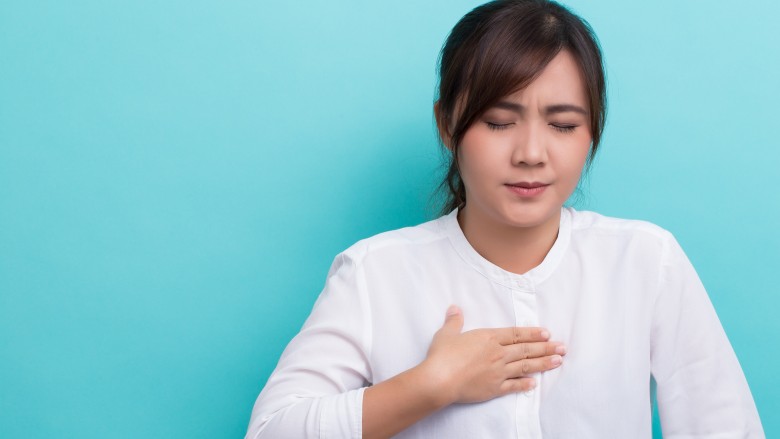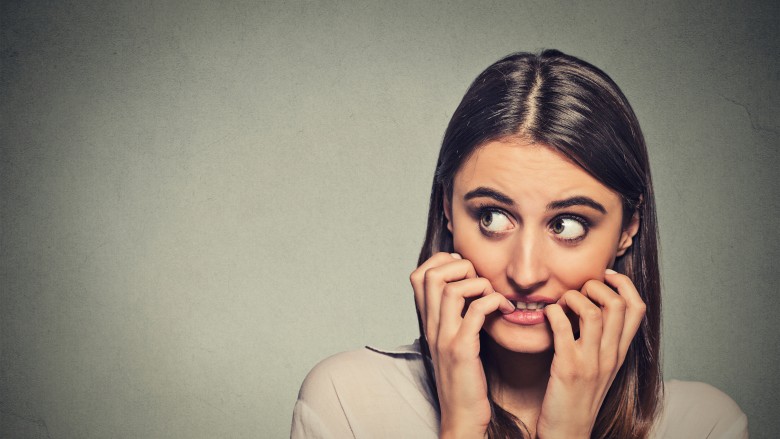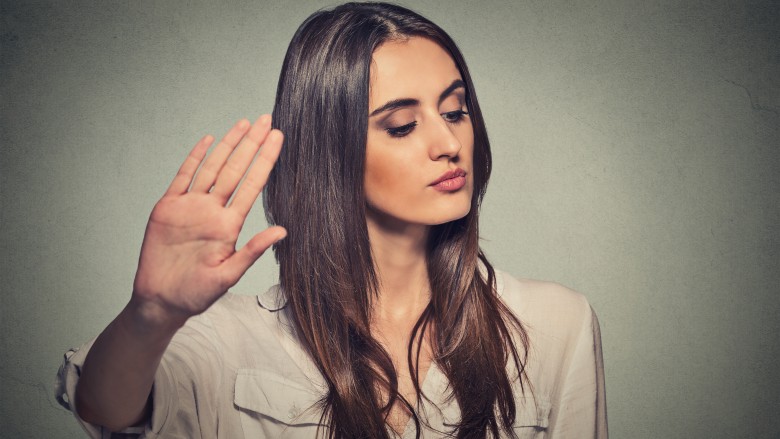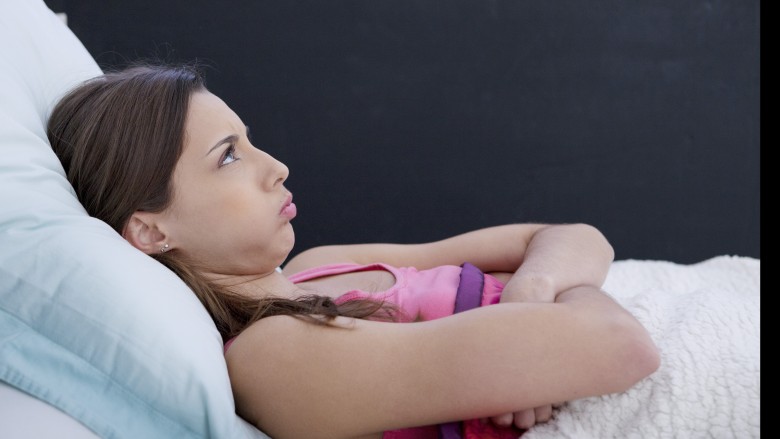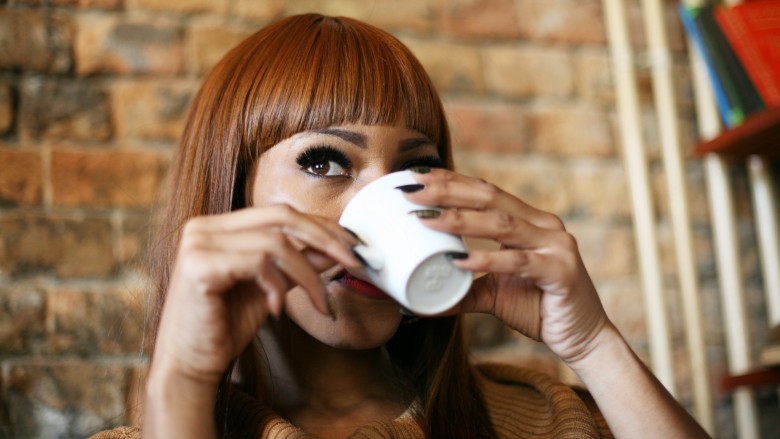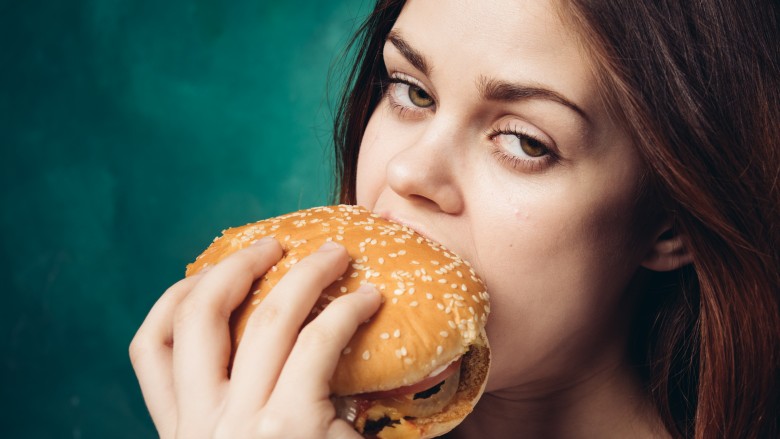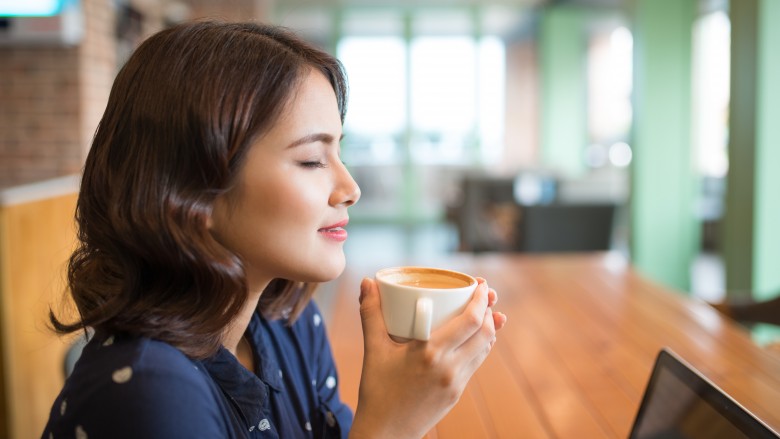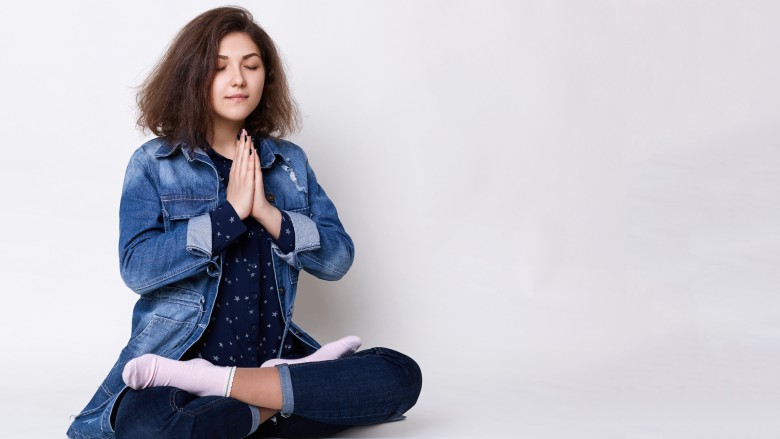Signs You're Drinking Too Much Caffeine
We may receive a commission on purchases made from links.
"But first, coffee." It's not just a quote you may find on mug or a sweatshirt — to many of us, it's a way of life. I love me some coffee, and like my fellow java aficionados, sipping on that morning cup is one of my favorite parts of the day.
"Second only to water, coffee is the most widely consumed beverage in the United States," Dr. Morton Tavel, MD., a clinical professor at Indiana University School of Medicine, told me in an interview. "Approximately two thirds of American adults drink coffee, consuming more than 400 million cups daily, a total that exceeds every other individual nation."
And while the regular morning cup of coffee seems to receive a clean bill of health according to Dr. Tavel, drinking it in excess — especially if you're also sipping on other things like soda and energy drinks on a regular basis — could lead to caffeine overconsumption and dependency, which can have major negative effects on our bodies. Hey, we all remember that episode of Saved by the Bell when Jessie overdosed on caffeine pills, right?
Here are a few tell-tale signs you're drinking way too much caffeine.
A nagging headache
If you've ever run out of the house without your morning cup of coffee, only to find yourself at work with a throbbing headache two hours later, this could be a sign of caffeine addiction. In fact, a study conducted by the Johns Hopkins University School of Medicine (via CBS News) found that just over 50 percent of regular coffee drinkers reported moderate to severe headaches after skipping it for just one day.
"Many people's headaches are related to their consumption of caffeine, most commonly in the form of coffee, tea, soft drinks, chocolate, and medications," Dr. Ray Sahelian, author of Mind Boosters and The Stevia Cookbook, explains on his website. "Caffeine is very similar in structure to another chemical in our body called adenosine. One of adenosine's jobs is to dilate blood vessels in the head. Caffeine blocks this dilation. When caffeine is withdrawn, your body is overly sensitive to adenosine and blood vessels will dilate, creating a pounding headache."
Your heart is racing
Your heart flutters as you drive by a Starbucks just thinking about that mocha latte. Yes, you are in love. But if you literally feel your heart pounding after downing your favorite cup of venti goodness, you and your coffee might be in a harmful relationship.
According to the University of Iowa's Heart and Vascular Center, caffeine is a common substance associated with heart palpitations. "Some people are sensitive to any amount of stimulant, but we began to see more caffeine-related palpitations when espresso-based drinks like cappuccinos and lattes became popular in the 1990s."
You're anxious
Feeling a bit nervous or jittery? Your morning coffee may be the one to blame. "Some people are very sensitive to caffeine and do get restlessness, irritability and anxiety even from one cup of regular coffee with caffeine," Dr. Sahelian explains on his website. "Some people even get anxiety from decaffeinated coffee either due to the caffeine remnants or the theobromine."
If you notice yourself feeling on edge after that second cup, try cutting back to see what happens. Meanwhile, be mindful of other things you're consuming throughout the day. That afternoon soda might be making you shaky without you even realizing.
You're grumpy
Some people joke about not being able to function before their morning coffee. But if you feel like you go from ax murderer to functioning human after a cup of Joe, this could be a red flag. Caffeine is a stimulant that affects your central nervous system. It increases your metabolism and energy, which explains why you usually feel so much better after drinking it.
"It stimulates the dopamine receptors in our brain, kind of like cocaine and other certain drugs, just not nearly to the same extent," Dana Hunnes, Ph.D., M.P.H., R.D., senior dietician at UCLA Medical Center, said in an interview with SELF. This feeling can become addicting, so if you're in a bad mood when you go without it, Hunnes said it is likely a sign that your body is relying on the stimulant to feel good.
You can't sleep
There's a reason people drink coffee when they're tired. Caffeine pumps up your body's adrenaline, which can make you feel more alert and awake. This can be helpful on a Monday morning when most of us can use an extra jolt of energy. But, it's not so helpful later on in the day, especially when you're trying to get some much-needed shut eye.
"Caffeine does more than serve as an eye-opener," Dr. Sahelian explained. "When consumed a few hours before bed, the most widely consumed psychoactive drug in the world seems to disrupt the body's internal clock. And this could cause jet lag-style sluggishness during daylight hours."
You are immune to the effects
If you're anything like me, you drink coffee more for the taste than for the energy it gives you in the morning. If I really want to use coffee to give me a boost, I have to drink a lot. I use to that this was simply because coffee didn't affect me, but after doing a bit of research, it might actually be a sign of overconsumption.
According to an article in Smithsonian, the brain's chemistry and physical characteristics actually change over time as a result of long-term caffeine consumption. "The most notable change is that brain cells grow more adenosine receptors, which is the brain's attempt to maintain equilibrium in the face of a constant onslaught of caffeine," the article notes. "This explains why regular coffee drinkers build up a tolerance over time — because you have more adenosine receptors, it takes more caffeine to block a significant proportion of them and achieve the desired effect."
You're starving
Some people use caffeine to curb their appetite, but drinking too much of it can actually have the opposite effect, says Dr. Barry Sears, a leading authority in anti-inflammatory nutrition and president of the Inflammation Research Foundation. "The breakdown products of caffeine stimulate insulin release that will drive down blood sugar levels," he explains. This can end up making you feel hungry.
You feel like you need it
If the thought of giving up your morning latte gives you a mild panic attack, your body may already be dependent on it. Instead of trying to quit cold turkey, Dr. Jo Lichten, Ph.D., a nutritionist and author of the book, Reboot: How to Power Up Your Energy, Focus, and Productivity, suggests trying to ween yourself off little by little. "For many people, it's best to cut back slowly since abrupt withdrawal can lead to fatigue and headaches," she said.
Benefits of cutting back
While a little bit of caffeine is usually harmless in most cases (in fact, caffeine has been associated with improved memory function), being addicted to anything is never healthy. So if your coffee or soda dependency is making you moody, giving you headaches or causing any other negative side effects, it might be time to dial it back a bit.
"One way to reduce the need for caffeine is to stabilize blood sugar levels so that the brain has its primary energy source constantly supplied," suggests Dr. Sears. "This means eating fewer high glycemic carbs (like white carbs) and more protein and low glycemic load carbs like vegetables."
Other benefits, Dr. Lichten notes, include "better focus and concentration, better sleep and feeling calmer." Feel like you'll miss your morning latte? Try a coffee substitute that's yummy and healthy like a peppermint tea or green smoothie. You may be surprised how easy it is to kick your coffee addiction to the curb.

